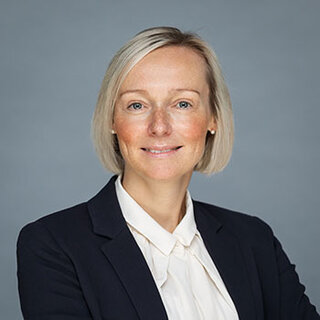
German port policy must do justice to the national and European importance of German seaports, demands BLG CEO Frank Dreeke ahead of the 13th National Maritime Conference (NMC), which is taking place this week in Bremen. As a seaport and logistics service provider with an international network and headquarter in Bremen, BLG LOGISTICS GROUP AG & CO KG is sponsoring the evening event of the NMC.
"We are very pleased that politics and business are meeting on the Weser this year. The ports of Bremen are central hubs of the maritime industry in Germany and the NMC is the German government's central event to support the maritime economy and is also the largest meeting of the industry," explains Dreeke, Chairman of the Board of Management of BLG LOGISTICS GROUP AG & CO KG (BLG). The Neustädter Hafen in Bremen, operated by BLG, is Europe's largest breakbulk terminal for conventional cargo. The BLG AutoTerminal Bremerhaven is one of the largest auto-mobile hubs in the world. The EUROGATE Group, in which BLG LOGISTICS holds a 50 percent stake, is Europe's leading shipping company-independent container terminal group. This makes BLG to one of the most important players in the maritime industry in Germany and Europe.
"We very much regret that the National Ports Strategy is not available for the National Maritime Conference in Bremen. We hope that the strategy will be in place by the end of the year," said Dreeke. In his opinion, the federal government must become more involved, particularly in financing and investments: "Currently, the federal government supports the German seaports with 38 million euros annually. That is not nearly enough." Germany is lagging behind the shipping companies in terms of port infrastructure and backland connections. This is one of the reasons why ports in the Netherlands, Belgium and Poland are gaining market share, according to Frank Dreeke, who is also a member of the Executive Committee of the Central Association of German Seaports. In his view, however, it is crucial to implement the plans quickly. Dreeke expects concrete commitments from the Chancellor and the Minister of Economics at the NMC. "We need at least 400 million euros per year to ensure that the German seaports remain competitive," demands the CEO of BLG.
The thirteenth National Maritime Conference is being held under the slogan "Strengthen the location. Protect the climate. Shaping the Future." "We can shape the future. We know very well where there is a need for action. We in Bremen would not have been playing at the top of the global logistics league for years if our seaports were poorly connected, but in view of climate targets and the growing movement of goods, we need a faster and more determined expansion of backland connections, especially the rail network," says Dreeke, pointing out that seaports play a central role in the energy turnaround as transshipment points for green energy. The National Ports Strategy must therefore also be a strategic commitment by the federal government and all the states to develop the ports together.



